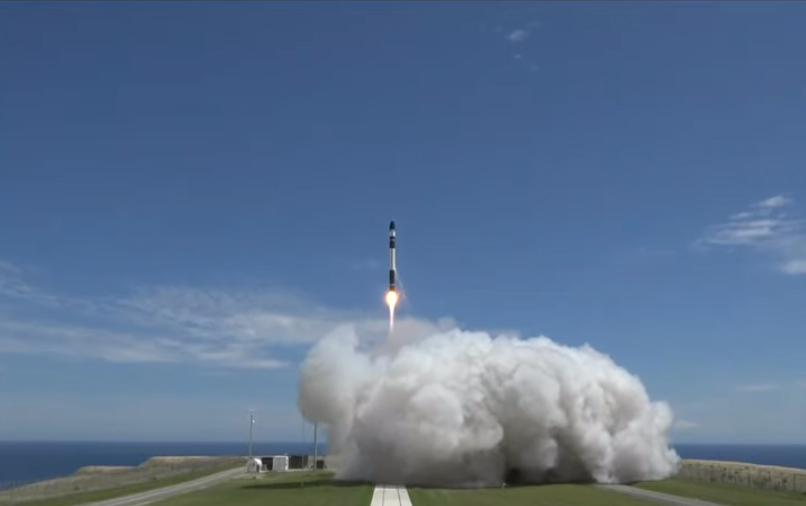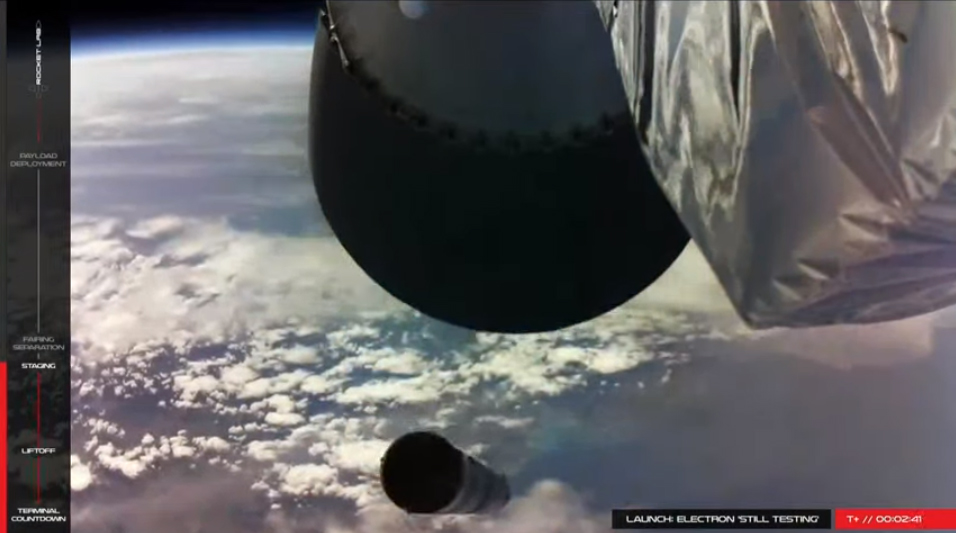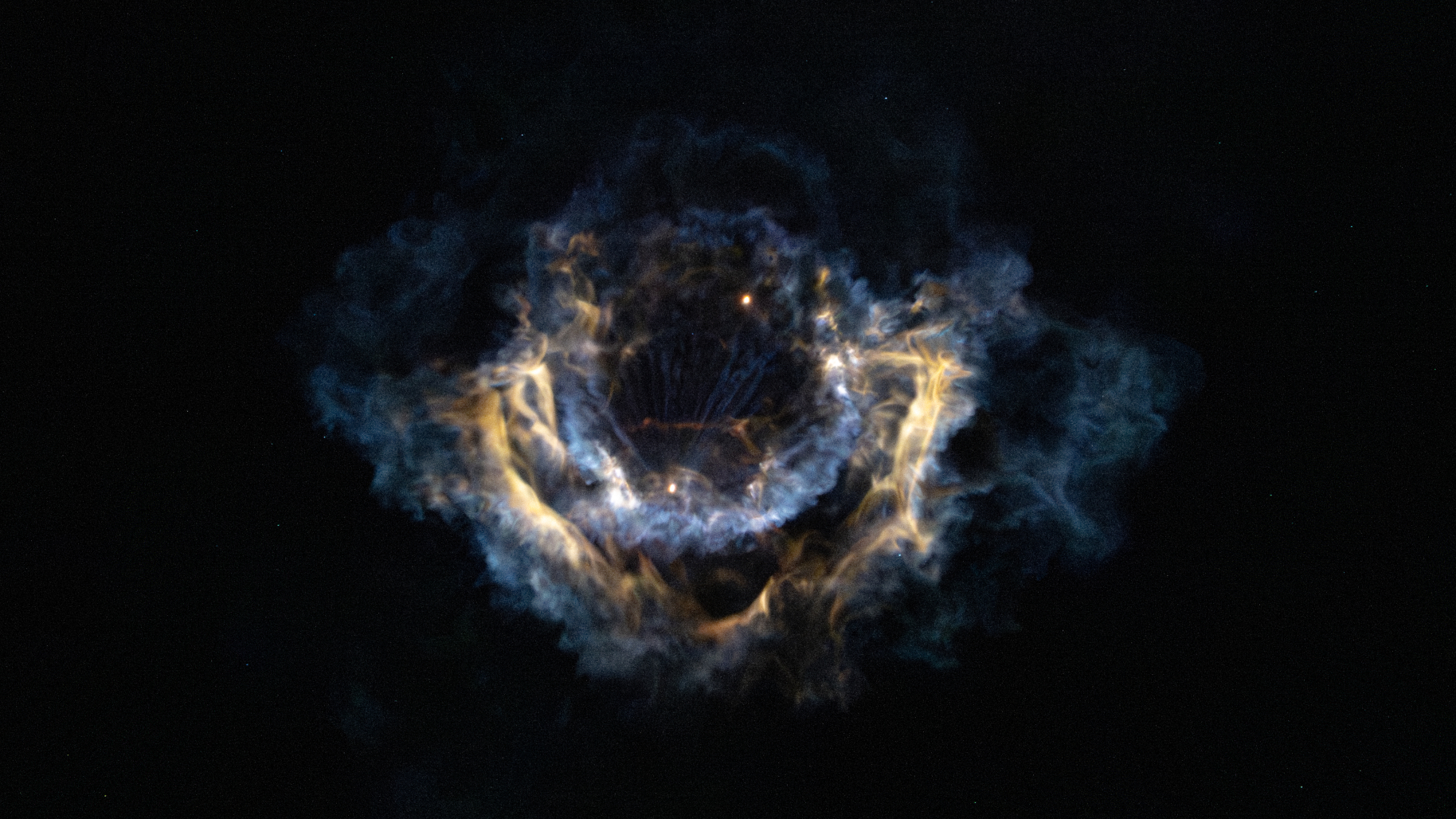Rocket Lab Launches 2nd Test Flight of Electron Small-Satellite Booster
Breaking space news, the latest updates on rocket launches, skywatching events and more!
You are now subscribed
Your newsletter sign-up was successful
Want to add more newsletters?

Delivered daily
Daily Newsletter
Breaking space news, the latest updates on rocket launches, skywatching events and more!

Once a month
Watch This Space
Sign up to our monthly entertainment newsletter to keep up with all our coverage of the latest sci-fi and space movies, tv shows, games and books.

Once a week
Night Sky This Week
Discover this week's must-see night sky events, moon phases, and stunning astrophotos. Sign up for our skywatching newsletter and explore the universe with us!

Twice a month
Strange New Words
Space.com's Sci-Fi Reader's Club. Read a sci-fi short story every month and join a virtual community of fellow science fiction fans!
An Electron rocket built by the commercial startup Rocket Lab successfully launched on its second test flight from New Zealand, carrying the company's first customer payloads into orbit.
The Electron blasted off today from the company's private launch facility on the Māhia Peninsula in New Zealand at 2:43 p.m. local time, which is 8:43 p.m. EST on Jan. 19 (0143 GMT). The launch was delayed 24 hours after two ships encroached into the launch's offshore keep-out zone.
Rocket Lab had initially scheduled its second Electron test flight for December, but various issues (mainly weather) stopped the company from going ahead with launch. Company representatives said ahead of the first launch window's opening that they were anticipating delays, and wanted to wait for perfect conditions to conduct the test.
This is Rocket Lab's second test flight of the Electron, and it marks an important step toward the company's goal of entering into commercial operations in 2018. The Electron can carry up to about 500 lbs. (225 kilograms) of payload — much less than most large rockets, which can carry thousands to tens of thousands of pounds. Electron's smaller size is meant to increase affordability and launch flexibility for customers with smaller payloads.
The company's first test launch of the Electron took place on May 25. On that day, the third stage of the rocket failed to reach its desired altitude, a problem that Rocket Lab later said was due to a ground equipment issue.
An emerging market
One of the satellites aboard the Electron rocket is a bread-loaf-size Earth-observing Dove satellite from the startup Planet (formerly Planet Labs). The other two are Lemur Earth-observing satellites from the company Spire. In general, satellites are becoming much smaller and cheaper to build, which is why a handful of companies, including Rocket Lab, are trying to provide a cheaper and more flexible way to get those small payloads into orbit.
Larger rockets, like those flown by companies including SpaceX and United Launch Alliance, can carry thousands or tens of thousands of pounds of cargo, and therefore small payloads generally have had to "piggyback" with larger payloads to get to space. Massive rockets are more complicated to launch, so customers are limited on the turnaround time for a liftoff. (Delays can shift launches back by months or years.) They're also more expensive to build, which limits the number of launches those companies do, which in turn limits the number of opportunities that customers have to space.
Breaking space news, the latest updates on rocket launches, skywatching events and more!
Rocket Lab is not alone in trying to crack open a small-launch market. Virgin Orbit (part of the Virgin group) is working on its LauncherOne small satellite launch system, which can carry payloads of up to about 660 lbs. (300 kg). That system relies on an aircraft to carry the rocket to an altitude of about 35,000 feet (10,700 meters) before launching into space. Virgin Orbit has said it plans to make its first test launches in 2018. The company Vector is working on a rocket that would carry even smaller payloads — up to about 145 lbs. (66 kg) — ideally for an even lower cost. Vector is also still working toward its first test launches to orbital altitudes.
These companies will also compete with regard to how quickly they can arrange a launch for their customers, how frequently they can launch payloads and the variety of orbits they can reach.
Follow Calla Cofield @callacofield. Follow us @Spacedotcom, Facebook and Google+. Original article on Space.com.

Calla Cofield joined Space.com's crew in October 2014. She enjoys writing about black holes, exploding stars, ripples in space-time, science in comic books, and all the mysteries of the cosmos. Prior to joining Space.com Calla worked as a freelance writer, with her work appearing in APS News, Symmetry magazine, Scientific American, Nature News, Physics World, and others. From 2010 to 2014 she was a producer for The Physics Central Podcast. Previously, Calla worked at the American Museum of Natural History in New York City (hands down the best office building ever) and SLAC National Accelerator Laboratory in California. Calla studied physics at the University of Massachusetts, Amherst and is originally from Sandy, Utah. In 2018, Calla left Space.com to join NASA's Jet Propulsion Laboratory media team where she oversees astronomy, physics, exoplanets and the Cold Atom Lab mission. She has been underground at three of the largest particle accelerators in the world and would really like to know what the heck dark matter is. Contact Calla via: E-Mail – Twitter


